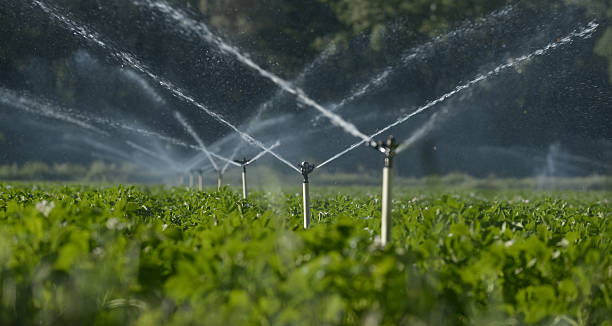Holland, St Elizabeth — Farmer Andrew Morris ploughed a section of his leased 10-acre plot at Holland Estate, adjacent to the famous Holland Bamboo Avenue, “six to eight” months ago hoping to plant pumpkins and sweet potatoes.
He hasn’t planted yet. That’s because of marauding cattle that are making the lives of farmers a living hell at the 2,400-acre estate which was turned over to lease holders three years ago after rum company J Wray & Nephew Ltd ceased sugar cane operations there.
Award-winning farmer 27 year-old Kateisha Allen told the Jamaica Observer that she felt the brunt of cattle damage when she planted three acres of sweet potatoes at Holland in 2020.
“The cows destroyed everything… I got nothing,” she lamented.
She has now fenced her property but the problem remains because “the cows still going in … the persons that own the cows cut the fence and let them in to feed”. Hungry cows were also breaking down the wire fencing to feed on her crops, said Allen, a native of Holland Village, who has gained acclaim for winning the Prime Minister’s youth award for agriculture and agro-processing.
Allen’s distressing story was backed up by Morris and other farmers.
“I have seen where persons cut wire fencing on people’s plot and even the perimeter fencing..,” Morris, who heads a benevolent society which loosely represents farmers at Holland, told the Sunday Observer. “They also open the gate (to farm land) and not close it back. … It has been a real challenge an uphill task for all of us,” he said.
Farmers say most of the cows are owned by people in surrounding communities, though there are also reports of some animals coming from further afield. Member of Parliament for St Elizabeth North Western, in which the Holland Estate falls, JC Hutchinson told the Sunday Observer of “rumours” that cattle had been taken by truck to graze at Holland. “I don’t know if it’s true but that’s what I have heard,” the MP, who is also a state minister in the Transport and Mining Ministry, said.
Such horror stories came aplenty as new Minister of Agriculture and Fisheries Pearnel Charles Jr alongside Hutchinson and officials of the agriculture ministry and related agencies toured Holland recently.
Charles saw cattle roaming about and was told of other problems, including periodic flooding of the property which lies at low altitude on the fringe of the Lower Black River Morass. The property has a high water table and is bound on either side by two streams, the Black River and the YS River. Both streams merge before entering the sea, miles away at St Elizabeth’s capital, Black River.
Despite the abundance of water, lack of irrigation linkages also pose a problem for famers in some sections of the property, during periods of drought. “When it wet, it very wet but when it dry, it very dry,” explained Morris.
Poor access roads to the sprawling property is also a major challenge.
At a post-tour meeting involving farmers, Government technocrats and Mohan Jagnarine, a private investor and agro-processor, Charles instructed Permanent Secretary Dermon Spence and other executives within the Ministry and related agencies, to speedily consult with farmers and come up with solutions. An initial meeting was set for last Friday.
Agro-Investment Corporation (AIC), an agency of the Ministry of Agriculture, currently has direct control of the Holland property.
Charles suggested that the cattle could be quickly removed once there was the will to do so. He appeared to suggest that issues such as flooding and irrigation would require more effort and expense. He called for a plan that would involve workable solutions as well as costing.
“What I want is a full compilation of what are the solutions and what are the costs,” Charles said, during the meeting at the Holland Primary School. “I would like to be able to look over there (at the Holland property) in the next two, three years and say we got it right,” the minister added.
He told farmers that having toured the estate, he was “not happy because I am looking at acres and acres of land instead of looking at reaping about to happen”. But, the minister argued, “every problem is an opportunity waiting” and much could be achieved if the farmers were prepared to work with him and his ministry.
Charles said management of the estate must improve to extract full potential as part of an effort to significantly reduce Jamaica’s multi-billion dollar food import bill and assure food security.
Cattle “nyaming down” farmers’ crops apart, the minister pointed to other evidence of waste and inefficiency. He cited as an example, expensive pumping of water from flooded sections of the estate with apparently no clear plan for use of excess water.
“What we call waste another country is utilising,” he said.
Farmers told the Sunday Observer that for them, the most immediate, and pressing challenge, is uncontrolled cattle. The problem is not new. Announcing its decision to abandon centuries-old sugar cane operations at Holland in 2018, J Wray & Nephew, while citing heavy losses, high operational costs and depressed sugar prices, also fingered damage caused by out-of-control cattle. The rum company, which is owned by the Italian alcoholic spirits giant Campari Group had also described periodic flooding as a big problem.
Farmers say the cattle problem has got worse since the exit of Appleton. Indeed, according to Morris, there may have been as many as 2,000 cows roving Holland Estate at one point last year.



